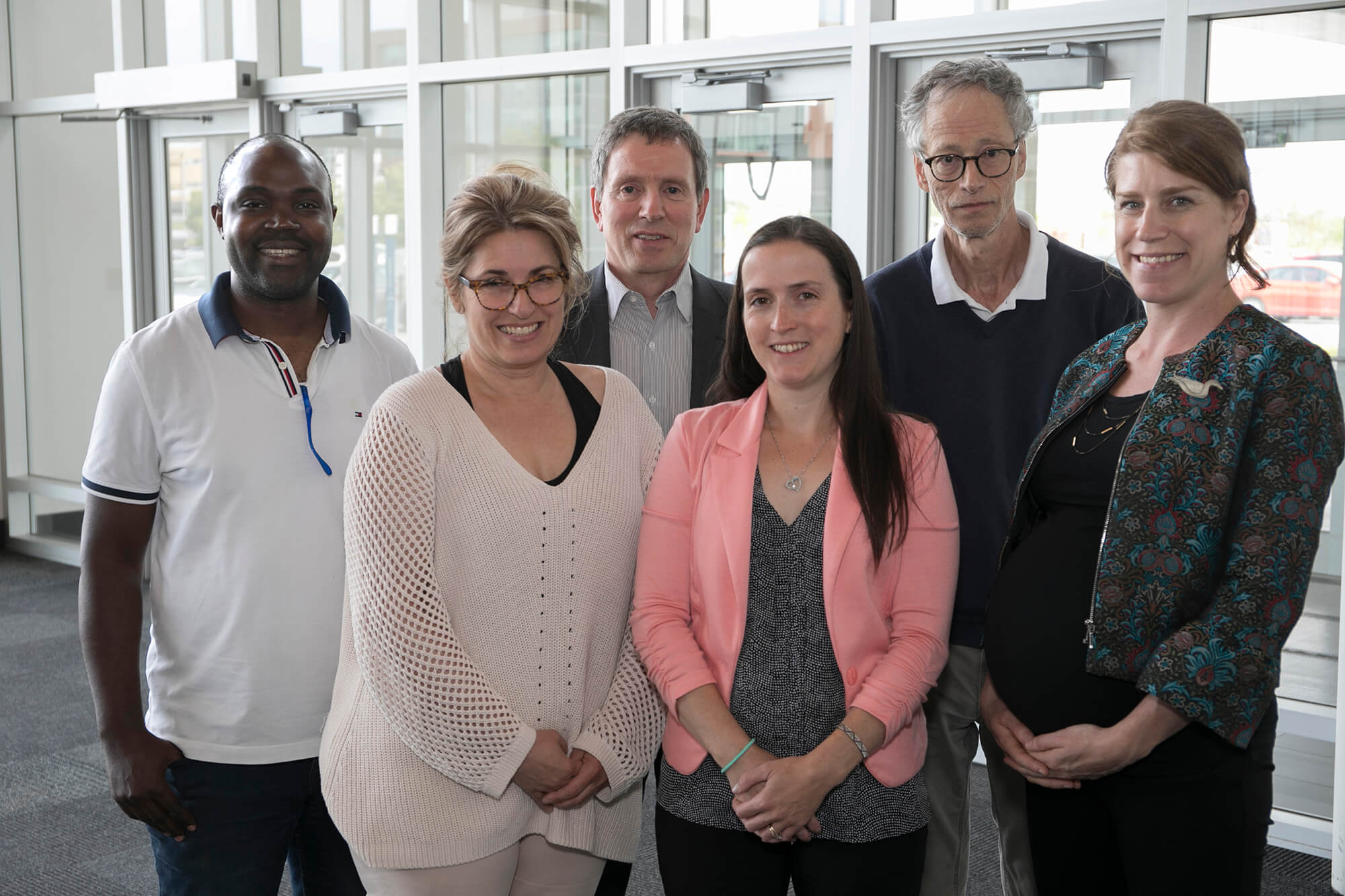New participatory research project on food security and nutrition in Nunavut
Published on 25 Sep 2019
A new participatory research project on food security and nutrition has just been launched within Sentinel North. This project, entitled “Participatory Action for Inuit-led Research on Food Production and Nutrition in Inuit Nunangat”, will be implemented in Cambridge Bay, Nunavut. View the detailed project page here.
The initiative, led by Caroline Hervé (Assistant Professor in the Department of Anthropology) and Patrice Dion (Professor in the Department of Plant Science), follows the Targeted Call for Proposals 2019–2022, which is aimed at implementing new sustainable health strategies in arctic and subarctic environments. With a strong nutrition and community mobilization component, the project will be carried out in close collaboration with local communities, in a participatory research dynamic.
A fertile ground for transdisciplinarity
Patrice Dion and Caroline Hervé will work together for the first time, leveraging their complementary expertise. “We started talking through the Sentinel North project. Then we noticed that our research interests were similar and would benefit from being combined,” says Dr. Dion.
Patrice Dion is accustomed to working in food security in tropical environments, but wanted to adapt certain principles and strategies to the unique context of Canada’s North. One of these principles corresponds precisely to the need to work closely with communities, while a second is the importance of increasing resilience in the face of the rapid changes affecting these communities.
Caroline Hervé, who is also the Sentinel North Research Chair on Relations with Inuit Societies, is interested in participatory research practices in the North. “The issue of food security provides a case study of research practices with communities and promotes the sharing of traditional knowledge and skills,” says Dr. Hervé.
Engaged partners in the field
Several collaborators and partners will allow the project to benefit from complementary expertise. Some of that expertise belongs to the community itself, which is an “essential condition for success,” says Dr. Dion.
“The Government of Nunavut is very open to supporting research, particularly in the area of food security,” says Chantal Langlois, a nutritionist with the Nunavut Department of Health. Well aware of the nutritional challenges posed by rapid ecosystem upheavals, Ms. Langlois underlines the public’s desire to be actively involved in research.
To facilitate the design and implementation of activities, Université Laval researchers can count on the support of the Canadian High Arctic Research Station (CHARS). Alain Leclair, Scientific Director of the CHARS, also stressed the importance of participatory research and the need to ensure that the project is fully embraced by the community. The CHARS aims to promote knowledge transfer between Indigenous and non-Indigenous people.
Locally, the project will be implemented by the Nunavut Department of Health, with the active participation of the Hamlet of Cambridge Bay. The activities will aim to ensure the economic viability and social and cultural integration of a crop production unit in a confined environment. The researchers want the community to set up, manage and maintain this unit for the benefit of all its members, particularly those who are most vulnerable.

Part of the project team, attending the Sentinel North Scientific Meeting 2019
Left to right:
- Séraphin Balla, Postdoctoral Fellow, Sentinel North Research Chair on Relations with Inuit Societies
- Chantal Langlois, Nutritionist, Nunavut Department of Health
- Alain Leclair, Director of Science and Technology, Polar Knowledge Canada
- Pascale Laneuville, Coordinator, Sentinel North Research Chair on Relations with Inuit Societies
- Patrice Dion, Professor in the Department of Plant Science and co-principal investigator of the project
- Caroline Hervé, Assistant Professor in the Department of Anthropology, Sentinel North Research Chair on Relations with Inuit Societies, and co-principal investigator of the project
About the Sentinel North Targeted Call for Proposals 2019–2022
Launched in October 2018, the Sentinel North Targeted Call for Proposals 2019–2022 invited the research community of Université Laval to mobilize and submit transdisciplinary and innovative research project proposals related to one of two specific themes: 1) Data analysis, diagnosis, predictive modelling and early warning or 2) New sustainable development and health strategies.
The 4 projects selected were launched on August 1st, 2019 and involve 20 funded researchers and many northern, international, public and private sector collaborators and partners. All projects bring together experts from different disciplines, working in close collaboration with Inuit communities and northern organizations.
In addition to Patrice Dion and Caroline Hervé’s project, the Targeted Call for Proposals 2019–2022 has led to three new projects:
- Professors Geneviève Vachon (architecture) and Michel Allard (geography) will develop an atlas of best practices for building a sustainable and culturally acceptable living environment in Nunavik.
- Professors Richard Fortier (geology and geological engineering) and Thierry Badard (geomatics) are proposing to develop a tool to predict and monitor extreme weather events and natural disasters.
- Professors Manuel Rodriguez (Université Laval’s graduate school of land management and regional planning) and Daniel Nadeau (civil and water engineering) will work on implementing an early warning and detection system for drinking water quality, based on environmental data analysis.

